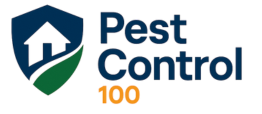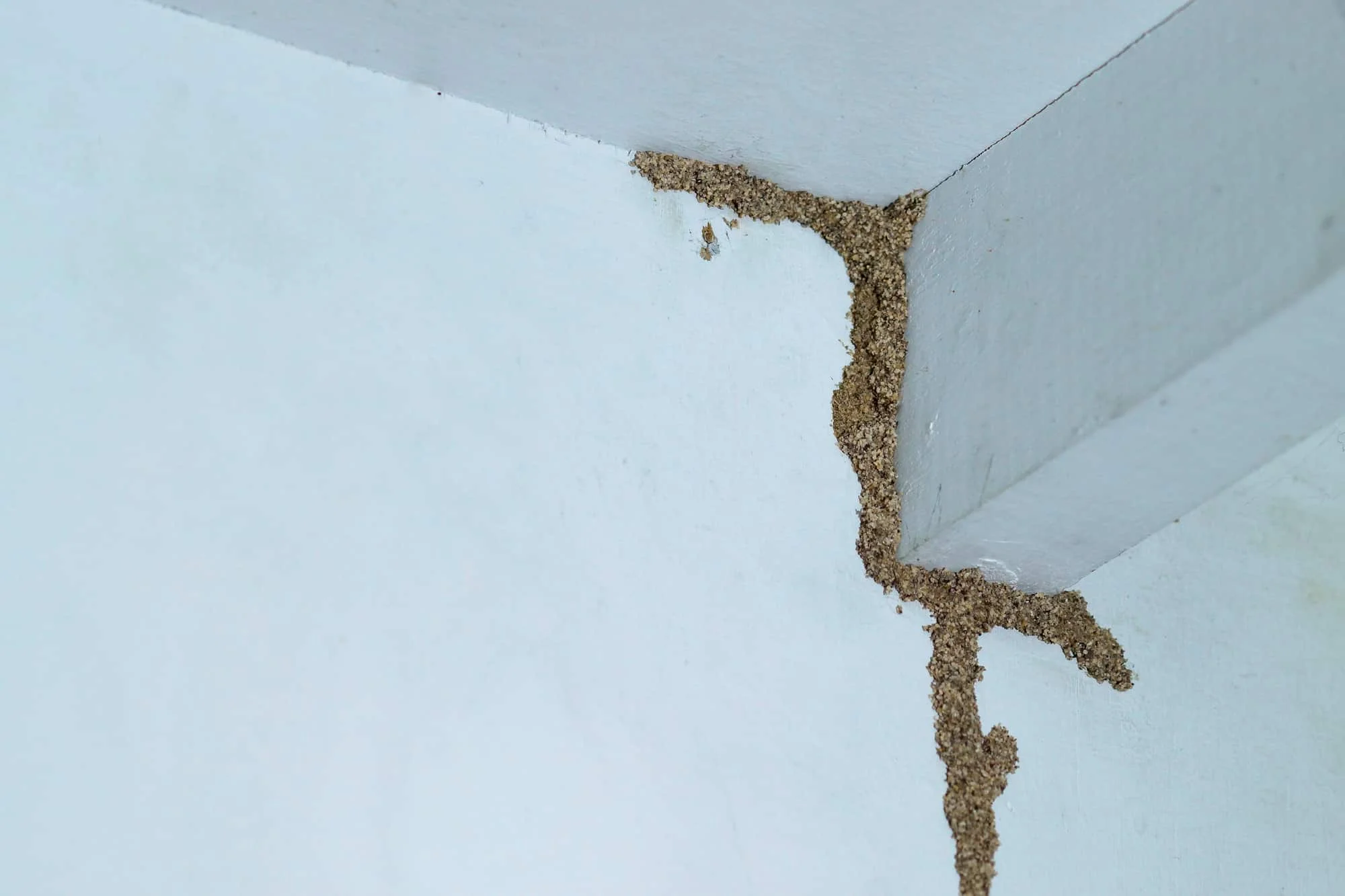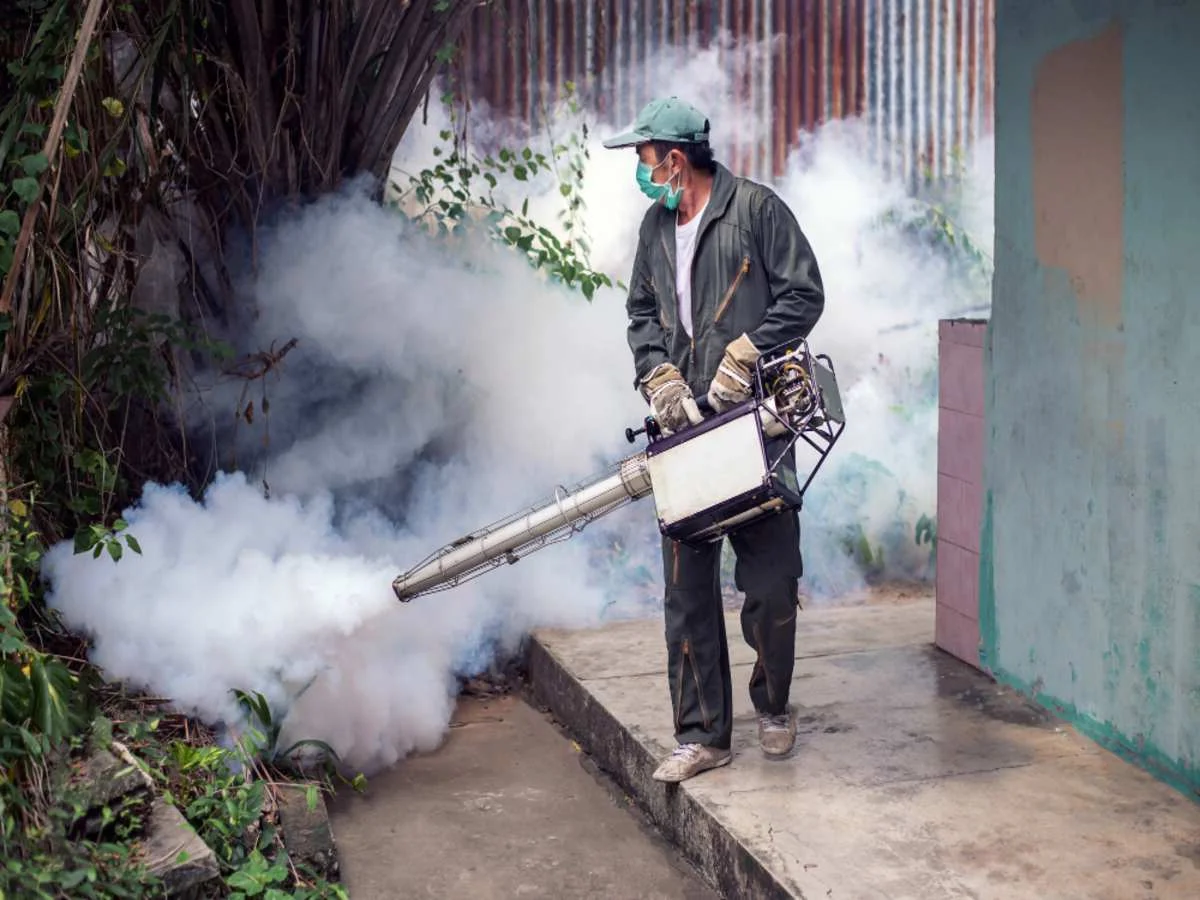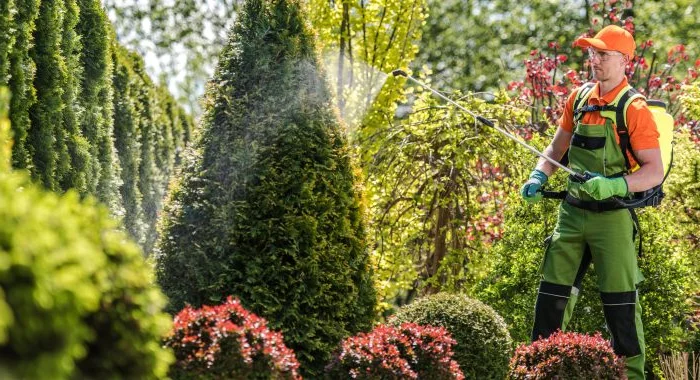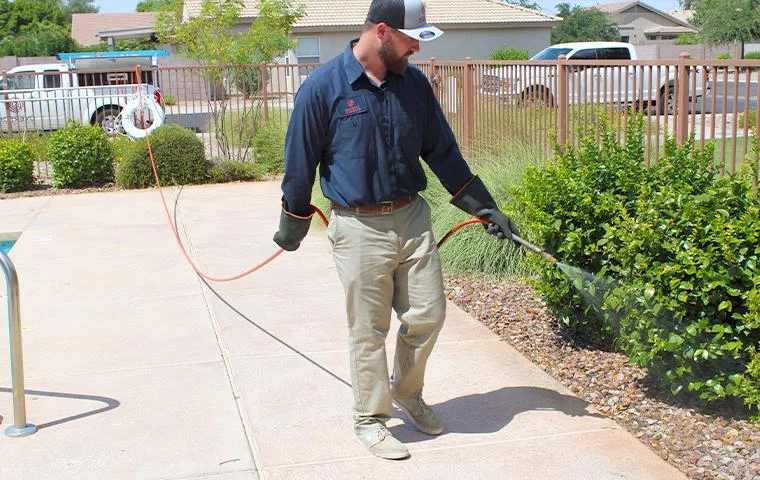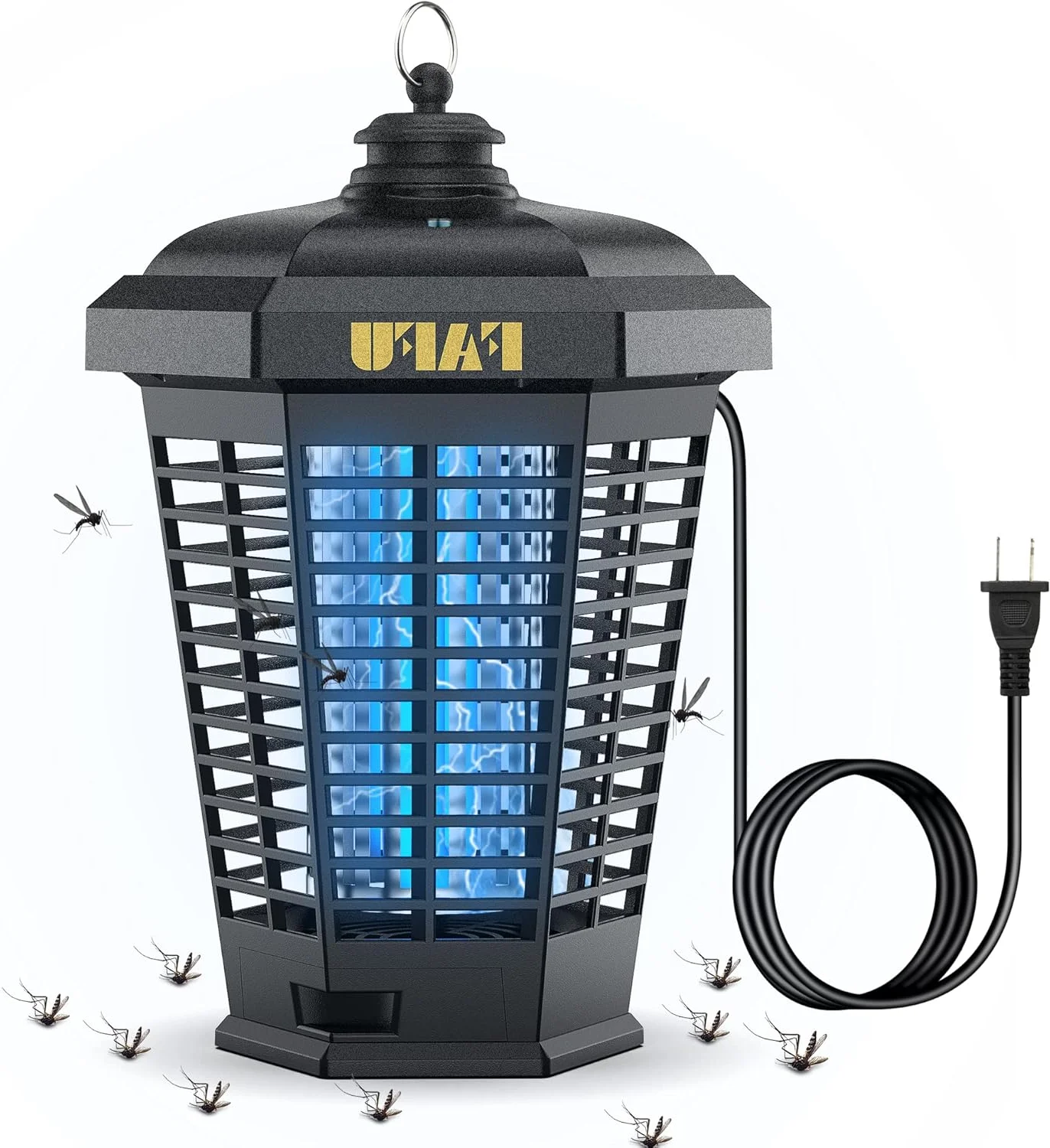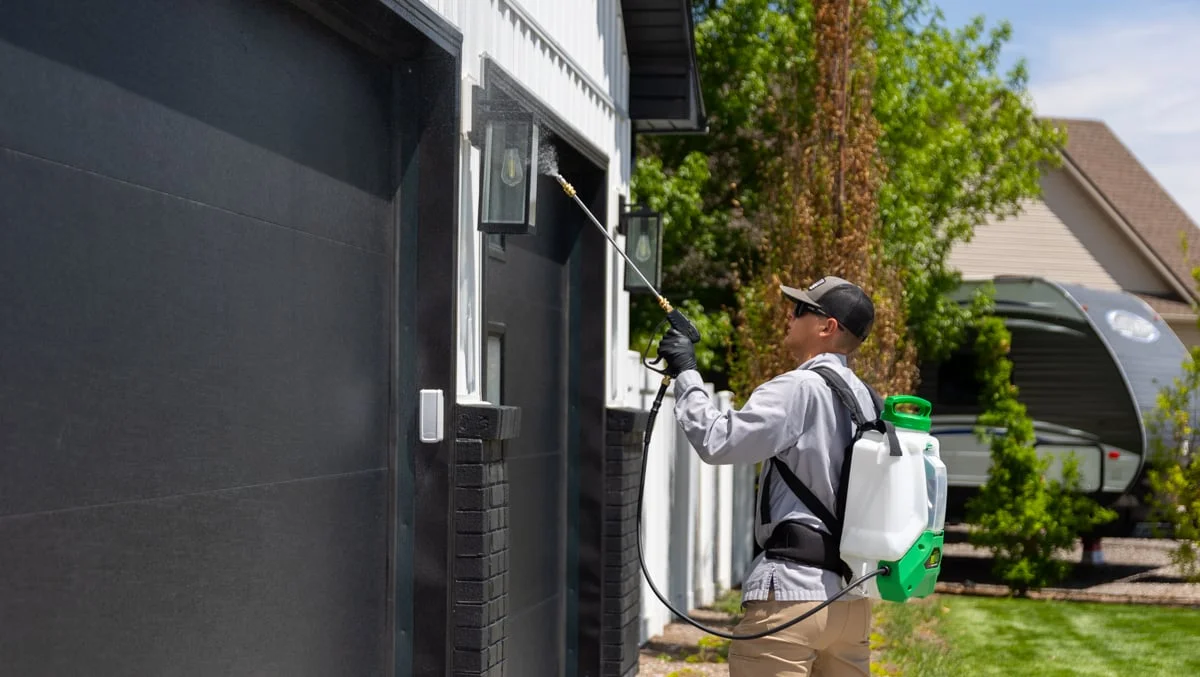Virginia's diverse landscape—from coastal plains to piedmont regions and Appalachian highlands—creates ideal conditions for a wide variety of pests year-round. The state's humid subtropical climate, with warm summers and mild winters, provides perfect breeding environments for insects, while the abundant wooded areas and waterways support thriving rodent populations. For homeowners and businesses throughout the Commonwealth, effective pest control in Virginia means understanding these regional factors and implementing strategies that address the unique challenges they present.
Properties across Virginia face continuous pest pressure that can damage structures, compromise health, and diminish quality of life. Whether dealing with termites in Richmond's historic districts, tick infestations in Northern Virginia's wooded neighborhoods, or rodent problems in coastal Hampton Roads, local professional exterminators offer specialized knowledge and targeted solutions. This guide explores Virginia's most common pest challenges, effective treatment approaches including eco-friendly pest solutions, and why trusting regional experts ensures the best outcomes for lasting protection in the Old Dominion.
Dealing with a Virginia pest emergency? Our local team provides
emergency pest control
24/7 and free
comprehensive inspections throughout Virginia.
Request help today for fast, reliable service!
Pest Control Challenges Specific to Virginia
Virginia's environment creates distinctive pest control challenges that require specialized approaches. Here's why effective pest management in the Commonwealth demands expert attention:
-
Diverse geographic regions Virginia spans from sea level coastal areas to 5,000+ foot mountains, creating dramatically different ecosystems within short distances. This variation means pest species, behaviors, and treatment approaches vary significantly between Tidewater, Piedmont, and Blue Ridge regions.
-
High humidity and rainfall Virginia's humid climate, particularly in eastern and central regions, creates ideal conditions for moisture-loving pests like termites, cockroaches, and mosquitoes. This climate accelerates breeding cycles and supports larger pest populations year-round.
-
Historic architecture Virginia's wealth of historic properties—from Colonial Williamsburg to Richmond's Fan District and Alexandria's Old Town—presents unique pest challenges. Older construction methods, settled foundations, and heritage preservation requirements demand specialized treatment approaches.
-
Urban-wilderness interface Virginia's expanding metropolitan areas increasingly border natural habitats, creating corridors for wildlife pests to move between undeveloped areas and residential zones. This is particularly evident in Northern Virginia's growing suburbs and the Richmond metropolitan area.
-
Mild winters Virginia's relatively moderate winter temperatures, especially in eastern regions, allow many pest species to remain active year-round or experience only brief dormancy periods. This creates continuous pest pressure without the population resets that harder freezes provide in more northern states.
Understanding these Virginia-specific challenges is crucial for implementing effective pest management. Professional pest control services develop customized treatment plans addressing these regional factors, providing targeted protection suited to the Commonwealth's unique environmental conditions.
Common Pests in Virginia
Virginia's diverse regions support numerous pest populations influenced by climate, habitat, and human development patterns. Here are the most common invaders that plague the Old Dominion:
Termites
Professional termite inspection being conducted on a Virginia home
Eastern subterranean termites pose a serious threat throughout Virginia, causing millions in property damage annually. The state's warm, humid climate creates ideal conditions for these destructive pests, which remain active nearly year-round in many regions. Virginia's abundance of older homes—particularly in historic districts of Richmond, Charlottesville, and Alexandria—are especially vulnerable due to their aging wood components and established colonies in surrounding soils.
Professional termite inspection and treatment are essential for Virginia properties, particularly during spring swarm season when reproductive termites emerge to establish new colonies. Effective management combines preventative barrier treatments, targeted colony elimination, and regular monitoring systems. For properties with existing damage, comprehensive treatment plans address both the active infestation and the conditions that made the structure vulnerable to attack in the first place.
Mosquitoes
Mosquito treatment being applied in a Virginia residential yard
Virginia's abundant water features—including the Chesapeake Bay, countless rivers, wetlands, and even temporary pools after rainfall—create perfect breeding conditions for numerous mosquito species. These biting pests are more than just a nuisance; they can transmit diseases like West Nile virus and Eastern Equine Encephalitis, making effective control essential for public health as well as outdoor comfort.
Effective mosquito control in Virginia requires a comprehensive approach that targets both larvae and adult populations. Professional services combine habitat modification to eliminate standing water, larvicide applications in water sources that cannot be drained, and targeted adult treatments around structures and landscape features. For Virginia's outdoor-loving residents, regular mosquito management during the extended warm season (typically April through October) reclaims backyards and outdoor spaces for comfortable enjoyment.
Ticks
Environmentally sensitive tick control being applied at a Virginia property edge
Virginia's diverse landscapes—particularly wooded areas, tall grass meadows, and wildlife corridors—support significant tick populations including deer ticks (blacklegged ticks), lone star ticks, and American dog ticks. These arachnids pose serious health concerns as potential vectors for Lyme disease, Rocky Mountain spotted fever, and Alpha-gal meat allergy, making tick management critically important for Virginia families and pets.
Professional tick management focuses on treating landscape areas where humans and pets are most likely to encounter these pests. Effective strategies include targeted perimeter applications, landscape modification to reduce tick harborage areas, and wildlife deterrents to limit the presence of animals that transport ticks onto properties. For Virginia's many hobby farms, rural homesteads, and properties adjacent to wildlife areas, comprehensive tick management protects both outdoor spaces and family health.
Rodents
Virginia properties face challenges from various rodent species, with mice and rats being most common in urban and suburban areas, while rural properties may encounter additional species like voles and field mice. The state's mild winters allow rodent populations to thrive year-round, with increased pressure on structures during cooler months when these pests seek warmth, shelter, and food indoors.
Comprehensive rodent control begins with thorough exclusion work to seal entry points around foundations, utility penetrations, and rooflines. Professional management combines strategic trapping, protected baiting systems where appropriate, regular monitoring for new activity, and habitat modification to reduce outdoor harborage areas. For Virginia's historic properties, specialized approaches protect architectural features while still effectively addressing rodent intrusions.
Stinging Insects
Virginia's climate supports numerous stinging insect species, including paper wasps, yellow jackets, bald-faced hornets, and carpenter bees. These pests can establish nests in eaves, attics, wall voids, or underground burrows, creating safety hazards for families and pets. Yellow jackets become particularly aggressive during late summer and fall, disrupting outdoor activities throughout the Commonwealth.
Professional management of stinging insects requires proper species identification, safe removal of established nests, and preventative measures to discourage future colonization. Early-season treatments targeting queen wasps and initial nests provide the most effective protection against large colony development. For Virginia properties with historic wasp problems, regular inspection of common nesting sites prevents dangerous populations from becoming established.
Eco-Friendly Pest Control for Virginia's Natural Heritage
Virginia's treasured natural resources—from the Chesapeake Bay watershed to the Blue Ridge Mountains—create strong demand for environmentally responsible pest management approaches. Modern eco-friendly pest solutions protect homes and businesses while preserving the Commonwealth's ecological integrity. Professional services implement Integrated Pest Management (IPM) principles that minimize chemical interventions through comprehensive inspection, environmental modification, and precisely targeted treatments only when necessary.
These sustainable approaches resonate with environmentally conscious Virginians and support the state's commitment to watershed protection, wildlife conservation, and public health. Eco-friendly solutions are particularly important for families with young children, properties with pets, homes with organic gardens, and structures near waterways, conservation areas, or wildlife habitats. Professional exterminators undergo specialized training in Virginia's ecosystem considerations, ensuring treatments effectively protect your property while respecting the Commonwealth's natural heritage.
Environmental Commitment
Virginia pest control specialists understand the importance of protecting the Commonwealth's diverse ecosystems, using carefully selected approaches that work effectively in both coastal and mountain regions while minimizing environmental impact.
Below is a comparison of different pest control treatment methods, including green options, highlighting their benefits for Virginia properties:
| Treatment Method |
Benefits |
Ideal Use in Virginia |
| Botanical-Based Products |
Utilizes plant-derived active ingredients that break down quickly in the environment while providing effective control for certain pest issues.
|
Properties near Virginia's abundant waterways, homes with children and pets, and areas where traditional pesticide use might impact sensitive ecosystems like the Chesapeake Bay watershed.
|
| Habitat Modification |
Addresses conditions that attract and support pests through environmental changes rather than chemical applications, providing sustainable long-term benefits.
|
Mosquito reduction through water management, rodent prevention through landscape adjustments, and termite protection through moisture control—particularly valuable in Virginia's humidity-prone climate.
|
| Targeted Application Methods |
Minimizes overall pesticide use by employing precise placement only where pests travel, nest, or harbor, significantly reducing environmental impact.
|
Perimeter treatments for seasonal invaders, crack and crevice applications for indoor pests, and focused spot treatments for active infestations—especially important near Virginia's many protected watersheds.
|
| Biological Controls |
Employs natural predators, beneficial nematodes, or microbial agents to manage pest populations without chemical intervention.
|
Treatments near sensitive Virginia ecosystems, organic gardens and farms, and properties where chemical sensitivity is a concern for residents or native wildlife.
|
| Physical Exclusion |
Creates barriers that prevent pest entry without any chemical use, providing long-term protection with zero environmental impact.
|
Rodent prevention in Virginia's historic homes, sealing to block overwintering pests in rural properties, and wildlife exclusion in areas bordering natural habitats throughout the Commonwealth.
|
Residential & Commercial Pest Control Throughout Virginia
Residential Pest Protection
Virginia homes face diverse pest challenges influenced by location, architecture, and surrounding environment. Residential pest protection programs are tailored to the specific needs of different Virginia properties, from waterfront homes in Tidewater to suburban neighborhoods in Northern Virginia, historic row houses in Richmond, and rural properties in the Shenandoah Valley.
Professional services offer customizable protection plans against Virginia's common household pests, with particular emphasis on protecting structural integrity from termites, maintaining comfortable outdoor living spaces free from mosquitoes and ticks, and preventing seasonal pest invasions during changing weather patterns. Treatment schedules adapt to Virginia's regional climate variations, with increased attention during times of peak pest activity and preventative measures before anticipated seasonal surges.
Commercial Pest Control
From restaurants in Alexandria to hotels in Virginia Beach, healthcare facilities in Richmond, warehouses in Roanoke, and government facilities throughout Northern Virginia, the Commonwealth's businesses require reliable pest management to protect reputations, maintain regulatory compliance, and ensure operational continuity. Commercial pest control programs address the distinctive challenges of Virginia's diverse business landscape with industry-specific protocols.
Professional services provide comprehensive documentation to support audit compliance, discreet scheduling that minimizes disruption to operations, and emergency response capabilities for urgent situations. Virginia's substantial tourism industry particularly benefits from effective pest management that preserves visitor experiences in coastal resorts, mountain lodges, historic attractions, and urban hotels. For food-related businesses, specialized programs address both stored product pests and seasonal invaders while maintaining compliance with Virginia health department regulations.
From residential pest protection plans to customized
commercial pest control solutions, we have properties across Virginia covered –
schedule your service now and keep your
property pest-free throughout the Commonwealth!
Why Choose Local Experts in Virginia?
When it comes to protecting your Virginia property from pests, working with local experts offers distinct advantages. A local pest control company understands the region's specific challenges and truly cares about the community. Here's why choosing local Virginia specialists makes a difference:
-
Knowledge of regional pest patterns Local technicians understand how Virginia's diverse regions—from the Eastern Shore to the Blue Ridge Mountains—influence pest behavior and treatment effectiveness. They tailor approaches for coastal salt marsh mosquitoes, suburban termite pressures, or mountain rodent challenges based on decades of regional experience.
-
Experience with Virginia architecture Local experts are familiar with the Commonwealth's distinctive building styles, from historic Colonial structures to modern developments. They understand how Virginia's architectural features—like brick foundation vents, crawlspaces in humid conditions, and older masonry—create unique pest vulnerabilities requiring specialized inspection and treatment techniques.
-
Understanding of seasonal timing Local professionals know exactly when different seasonal pests become active in specific Virginia regions, allowing for precisely timed preventative treatments before termite swarms, tick emergence, or overwintering pest invasions driven by weather changes unique to the Mid-Atlantic climate.
-
Familiarity with local regulations Virginia maintains specific regulations regarding pesticide applications, especially in watersheds, historic districts, and sensitive environmental areas. Local specialists navigate these requirements daily, ensuring all treatments remain fully compliant with Commonwealth and local ordinances.
-
Community connection Local Virginia companies live in the same communities they serve, creating accountability and long-term relationships built on trust. This local presence means faster response times for urgent issues, personalized service from technicians who know your property, and a genuine investment in protecting Virginia neighborhoods where they also live and work.
By choosing local professional exterminators with deep knowledge of Virginia's specific pest challenges, property owners receive more effective, regionally-appropriate solutions than generic approaches used by those unfamiliar with the Commonwealth's unique conditions.
Regional Pest Control Services Throughout Virginia
Different regions of Virginia face unique pest challenges based on geography, climate, and development patterns. Professional pest control specialists understand these regional differences:
Tidewater/Hampton Roads
Including: Virginia Beach, Norfolk, Chesapeake, Newport News, Hampton, Suffolk, Portsmouth
Virginia's coastal region faces distinctive pest challenges driven by proximity to the Atlantic Ocean and Chesapeake Bay. High humidity and abundant water sources support significant mosquito populations, while sandy soils favor subterranean termite activity. Salt marsh mosquitoes can travel miles inland from coastal breeding grounds, creating pest pressures even away from obvious water sources. Urban waterfront areas contend with Norway rats and American cockroaches, while newer suburban developments often face significant wildlife interface issues as former wetlands and woodlands are developed.
Northern Virginia
Including: Alexandria, Arlington, Fairfax, Loudoun County, Prince William County, Stafford
This densely populated region experiences significant pest pressures from both urban and suburban environments. Older neighborhoods near Washington DC contend with established rodent populations and persistent cockroach issues, while rapidly expanding suburbs face challenges from disturbed wildlife habitats. The region's abundant parks, stream valleys, and wooded areas support tick populations that can transmit Lyme disease and other illnesses. The area's concentration of commercial properties, including restaurants and hotels, creates ongoing demand for discreet, effective commercial pest management programs.
Central Virginia
Including: Richmond, Charlottesville, Fredericksburg, Petersburg, Lynchburg
This region blends historic urban neighborhoods with suburban and rural properties, creating diverse pest management needs. Richmond's historic districts face significant challenges with aging infrastructure that provides harborage for cockroaches and rodents, while the city's river frontage creates moisture conditions supporting termite activity. The region's mix of older homes and new construction requires varying treatment approaches based on building methods and materials. Agricultural areas surrounding population centers can generate seasonal pest movements, particularly during harvest activities.
Shenandoah Valley & Southwest Virginia
Including: Roanoke, Harrisonburg, Staunton, Winchester, Blacksburg, Bristol
This predominantly mountainous region experiences cooler temperatures and different pest cycles than eastern Virginia. The extensive wooded areas and wildlife habitats create significant tick and mosquito pressures in warmer months, while harsh winter conditions drive strong seasonal rodent invasions into structures. The region's abundant cabins and vacation properties face unique vulnerabilities during unoccupied periods. Agricultural operations throughout the valley contend with both structural pests and field pests that can occasionally affect residential properties, particularly during seasonal transitions.
Top Cities for Pest Control in Virginia
Professional pest control services are available throughout the Commonwealth. Below are some of the major Virginia cities where quality pest management is especially important:
Richmond
As Virginia's capital and one of its oldest cities, Richmond presents unique pest control challenges across its diverse neighborhoods. The city's historic districts contend with aging infrastructure that provides ideal harborage for cockroaches and rodents, while established termite colonies have persisted for decades in some areas. Richmond's position along the James River creates moisture conditions that support numerous mosquito species throughout the warm season. The city's extensive parks and green spaces host tick populations that can affect adjacent residential areas, particularly properties bordering the James River Park System, Bryan Park, and other natural spaces.
Virginia Beach
This coastal resort city experiences distinctive pest pressures influenced by its beachfront location, extensive waterways, and rapid suburban growth. The city's tourist areas require discreet but thorough pest management to protect visitor experiences in hotels, restaurants, and attractions. Mosquito populations thrive in the city's abundant marshes, waterways, and seasonal standing water, creating significant challenges for outdoor living spaces. The sandy soils throughout Virginia Beach provide ideal conditions for subterranean termite activity, while the moderate coastal climate allows extended periods of pest activity throughout much of the year.
Virginia Service Coverage Map
Seasonal Pest Guide for Virginia
Spring (March-May)
- Termite swarms emerge
- Tick populations become active
- Ant colonies expand rapidly
- Mosquito breeding begins
Recommendation: Schedule annual termite inspection, implement early mosquito prevention, and establish perimeter treatments against spring-emerging pests.
Summer (June-August)
- Mosquito activity reaches peak levels
- Wasp and hornet colonies expand
- Cockroach populations thrive in the heat and humidity
- Flea infestations become more common
Recommendation: Maintain regular mosquito treatments, monitor for stinging insect nests, and reinforce pest barriers during Virginia's hottest season.
Fall (September-November)
- Rodents begin seeking indoor shelter
- Stink bugs and box elder bugs invade homes
- Spider activity increases indoors
- Yellow jacket colonies reach maximum aggression
Recommendation: Focus on rodent exclusion, treat for overwintering insect invasions, and address stinging insect nests before winter.
Winter (December-February)
- Rodent infestations peak indoors
- Overwintering insects emerge during warm spells
- Cockroach activity continues in heated structures
- Preparation for spring termite season
Recommendation: Address indoor pest activity and implement preventative measures before spring pest emergence.
Virginia's moderate climate, particularly in eastern regions, means that some pest activity continues year-round, though specific patterns emerge seasonally. Professional pest control services adjust their approach throughout the year to address these predictable cycles and protect properties during key seasonal transitions and pest emergence periods.
What Our Virginia Clients Say
"After struggling with mosquitoes making our Virginia Beach backyard unusable each summer, we finally found a solution that works. Their seasonal mosquito program has transformed our outdoor living experience, allowing us to enjoy evenings on our patio without being driven inside."
- Jennifer M., Virginia Beach
★★★★★
"As owners of a historic home in Richmond's Fan District, we were concerned about finding pest control that would respect our property's character while still effectively addressing our termite concerns. Their expertise with older construction methods and customized treatment approach gave us complete confidence."
- Michael T., Richmond
★★★★★
"Running a restaurant in Alexandria's Old Town means pest control isn't optional—it's essential for our reputation and compliance. Their commercial program provides discrete, effective service that keeps our historic building pest-free without disrupting our busy operation or bothering our customers."
- David L., Alexandria
★★★★★
Frequently Asked Questions
How often should Virginia homeowners schedule pest control services?
Most Virginia properties benefit from quarterly pest control treatments due to our extended warm season and diverse pest pressures. However, specific situations may require more frequent visits, particularly for mosquito control during summer months (typically monthly treatments from April through October) or for properties with persistent challenges from specific pests. During your initial inspection, our technicians will recommend an optimal schedule based on your property's location, construction, surrounding environment, and pest history.
What makes Virginia's termite risk higher than many other states?
Virginia's combination of humidity, mild winters, and abundant wooden structures creates ideal conditions for termites. The Commonwealth falls within what exterminators call the "moderate to heavy" termite pressure zone, where native Eastern subterranean termites thrive. Additionally, our year-round moisture levels and soil conditions support active colonies with only brief winter dormancy in most regions. Virginia's wealth of older structures—many with untreated wood in direct soil contact or moisture issues from aging foundations—provides ready access for these destructive pests, while our extended warm seasons give termites more active months each year to cause damage.
Are your treatments safe for children, pets, and Virginia's waterways?
Absolutely. Our Virginia technicians are specially trained in modern, environmentally responsible pest management techniques that effectively control pests while minimizing impacts on non-target organisms. We utilize targeted application methods that place products only where pests travel, reducing overall chemical use. Our service protocols include buffer zones around play areas, pet spaces, and water features, and we select products and formulations specifically designed to break down rapidly in the environment. For properties near sensitive watersheds—particularly important in the Chesapeake Bay drainage area—we implement additional precautions including specialized treatment methods and product selections that protect Virginia's vital water resources.
